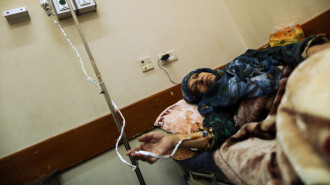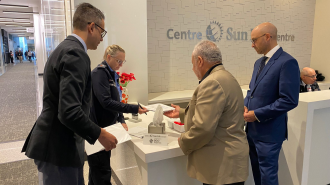Syrian journalist wins UK award for Aleppo hospital film
Al-Kateab was awarded for her coverage inside east Aleppo's last functioning hospital, al-Quds, in November 2016 as the rebel-held zone starting falling to the Syrian regime.
Her footage "shows us so powerfully the horrors of war", said judges for the Rory Peck Trust which supports freelancers globally.
"I've seen this at least five times, and it still makes me well up. It is an exemplary piece of journalism."
The harrowing footage from what was once Syria's most populous city, broadcast by Channel 4 News and ITN, opens with a traumatised toddler who sits silent and covered in dust as a woman tries to comfort him.
"Oh my God! All my children are gone," cries the woman with blood down her face, the only adult of three families to survive the bombing of their apartment block.
Following survivors of the attack around the hospital, al-Kateab filmed two young siblings searching for their mother; the children described by the narrator as "exhausted beyond words, by a life beyond description".
Accepting the award, al-Kateab said her "only concern was that our story gets told".
"Everything that happened in Aleppo is happening all over again," she said, addressing the audience from behind the scenes to protect her identity for security reasons.
Al-Kateab studied at Aleppo University and taught herself how to film, while she received further training from NGOs, Deutsche Welle Academy and Orient TV.
Her reports from Aleppo have collectively been viewed by over 400 million people, the Rory Peck Trust said.
East Aleppo was seized by the armed opposition in July 2012 and the city was recaptured by the Syrian army last December, following a devastating five-month siege.
The Syrian conflict began when the Baath regime, in power since 1963 and led by Assad, responded with military force to peaceful protests demanding democratic reforms during the Arab Spring wave of uprisings, triggering an armed rebellion fuelled by mass defections from the Syrian army.
According to independent monitors, hundreds of thousands of civilians have been killed in the war, mostly by the regime and its powerful allies, and millions have been displaced both inside and outside of Syria.
The brutal tactics pursued mainly by the Russia-backed Syrian regime, which have included the use of chemical weapons, sieges, mass executions and torture against civilians, have led to war crimes investigations.


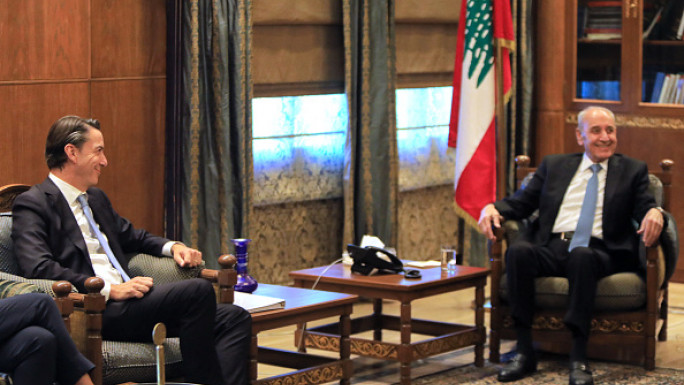
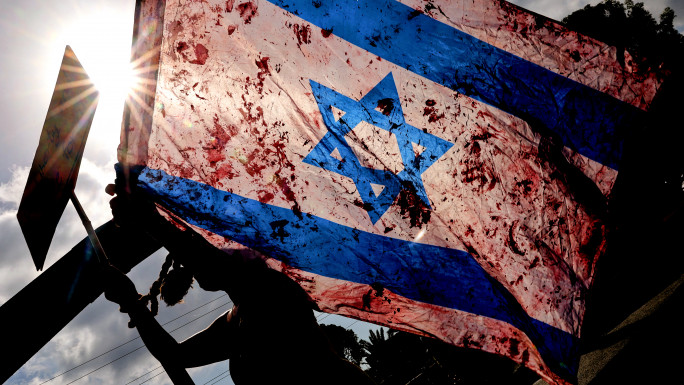
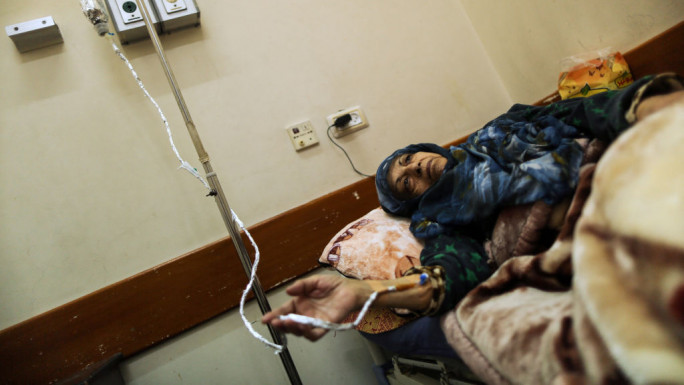
 Follow the Middle East's top stories in English at The New Arab on Google News
Follow the Middle East's top stories in English at The New Arab on Google News
